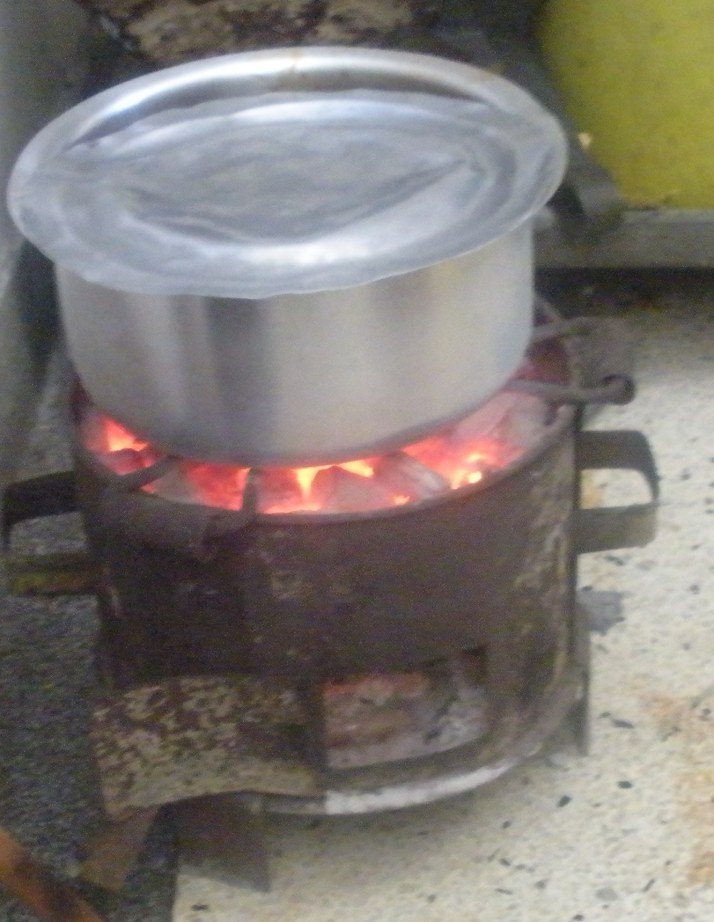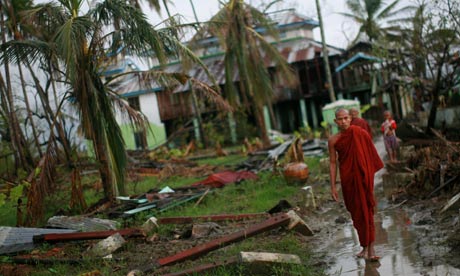 |
| Engineering students, Oxford University |
Recently, I was invited to talk to a group of Oxford University engineering students about solar cookers. I am not an engineer nor qualified to speak on technical issues, but I felt that I could be a voice for the beneficiaries in developing countries. A key to the success of a product is the early involvement of the intended end user in the design process.
I often visit my family in Kenya. My relatives in Nairobi welcome me with a traditional meal of chicken, beef, vegetables, rice and ugali. The food is cooked by the women over a cylinder gas cooker, a table-top electric hob or a paraffin stove.
After Nairobi, I return to my childhood home, Uboro, a rural village in Nyanza Province far from the nearest city, Kisumu. I love the freshness in the air. Over time, much of the surrounding area has been cleared for farming, but the land has been degraded. The soil is easily washed into the river ‘ugege’ from the hill where I collected firewood as a child.
 |
| Kenyan Jiko, photographer AH |
My elderly mother serves food cooked using the traditional three stones and firewood or, when there is charcoal, on traditional charcoal stove called a jiko. The Jiko is used sparingly to save on the cost of charcoal but, in her old age, my mother is not strong enough to gather firewood for herself. She uses some of the little money I send her to buy firewood from the market.
African evenings can be chilly so, as a child, I loved to sit round the fire with my siblings while my mother cooked a simple meal and shared her wisdom with us. The smoke from the kitchen brought tears to our red eyes which only stopped when the food was ready to be served!
Cooking food in a solar oven could reduce the need for fuel and so reduce the burden on women to gather wood or pay for expensive sources of fuel. It would also reduce health hazards for women labouring for so many hours over a fire and for their children who accompany them.
Solar cooking is an environmentally friendly technology that could contribute to the solution, provided that the technology is accepted by end-users and that the solar ovens are both appropriate and affordable. However, it is important to understand a community’s way of life and traditional practices before deciding on what’s good for them.
Currently there are many efforts to design an appropriate solar cooker; some are already being marketed or distributed. There seems to be a race to be the first to get the product to market regardless of whether it is culturally acceptable.
It is important to appreciate that African families come in different sizes, and that cooking pots will vary according to family size and the types of food being prepared. Like others, Africans prefer to cook inside the house. The fire warms the house for those who would use the kitchen later as their bedroom, and the smoke, it is believed, kills the insects that invade a muddy grass thatched kitchen. Those without fridges use the smoke to dry food so that it does not go bad. The intended user of a solar oven MUST be involved in deciding what would be culturally appropriate in their situation.
 |
| The Albedo Solar Oven, one of a number of design concepts by the ISIS-Dytecna partnership |
I commend the Oxford University students for engaging with someone with first-hand experience of the context and the people’s way of life, even if their current assignment is a paper exercise. It is my hope that when they complete their studies and get to apply their knowledge, they will remember to involve the intended customer or beneficiary!

.JPG)
